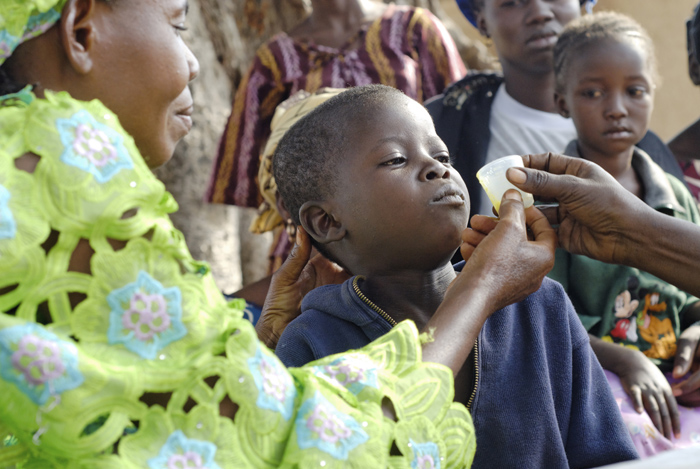Patient Story: the malaria project in southern Mali, Kangaba region

Background
MSF works in the Kangaba region in southern Mali, where malaria is the main killer and most prevalent. Mali is a poor country and few people have access to health care, particularly during the rainy season when many villages become isolated, and when malaria spreads most rapidly.
The MSF project aims to provide access to quality medical care for people with malaria in Kangaba. MSF supports 11 health centres and uses mobile teams of 66 village malaria workers, who are trained and equipped by MSF to rapidly detect and treat uncomplicated malaria cases in children under 13 years old in remote villages during the rainy season. They also know how to recognise signs of severe malaria in order to refer them to secondary health structures.
In the MSF-supported health centres, health care is free for children under five years old and for pregnant women who have a fever. Care is also available at low cost for people over five years of age suffering from fever. As a result, more cases of malaria are treated early, which is very important for a disease that can be fatal. There has been a similar trend in the treatment of other diseases.
In 2009, MSF carried out more than 118,000 consultations. The number of people with malaria in the MSF project increased gradually from 25,640 in 2007 to 60,000 in 2009. 1,155 patients were hospitalised for severe malaria, a number that was kept low due to earlier detection of sick patients.
A survey conducted by MSF in 2008 showed that implementation of free care led to a significant increase in consultations numbers but also to a reduction of mortality among the general population of the region.
Story of Kanda Koné (five years old)
Kanda lives in Deguela, the village in the Kangaba region of southern Mali where Fatoumata Traoré has been trained by Médecins Sans Frontières to treat simple cases of malaria in children under thirteen.
When we first meet Kanda, he is unwell. He has come to see Fatoumata, the malaria village worker, during her consultation under the big tree in the village square. His aunt brought him; his mother is busy working on the family’s field. Kanda sits very quietly, he is not scared of having his finger pricked. The rapid diagnostic test shows that Kanda has malaria.
Fatoumata gives him his first dose of medicine straight away. She dilutes the pill in a bit of water so that he can swallow it more easily. Then she hands his aunt two more pills to take home. She explains that it is best to give the medicine with a bit of food and drink, otherwise Kanda might feel dizzy or sick after taking it.
The next day, we visit Kanda at his hut. He is with his mother. She says he is feeling a bit better today, but he still has a fever.
I ask Kanda who looks after him when he is unwell, and he says “Fatoumata”.
Kanda’s mother says:
“He has malaria almost every month. He doesn’t want to play when he is sick, he stays in bed. I always take him to Fatoumata. She gives him medicine and the illness goes away. I trust Fatoumata. Médecins Sans Frontières came to our village and explained that they would train one person to be our malaria-helper. They said they would give her medicine and teach her everything she needs to know to recognize simple cases of malaria in our children and cure them. They said we have to chose who we want our malaria-helper to be. So we held a big assembly. The whole village came and we chose Fatoumata. She is very meticulous and works hard. When our children are unwell, we can call her even at night. It’s very easy to see that it is good for our village to have her.”
One day later, we visit Kanda at his hut again. When we arrive, Kanda is crying. I fear he might be poorly again, but no: he was climbing a tree, fell down, and hurt his knee. As soon as he recovers, he runs off with his friends. Soon he is chasing an old bicycle wheel around his family’s hut. Everyone cheers. His mother laughs: “That boy is always running around. You will never see him sit still unless he is sick.”
Kanda says:
“My name is Kanda, I am five years old. There are many mosquitoes in my village. They bite us and we get sick. I feel hot when I have malaria and am often sick. I always go to Fatoumata when my body feels too hot. My mother takes me, and sometimes my aunt. I get sick a lot. When I go to see Fatoumata, she checks my temperature and pricks my finger. But I am not scared. Fatoumata is nice and she looks after me. She gives me medicine, it tastes bitter. When my mother gives me the medicine, she mixes it with sweet tea. That makes it taste better. The medicine helps, after I’ve taken it I can around with my friends again and play. What I like best is playing with my bicycle wheel. I pretend it’s my motorbike. When I am big, I want to have a real motorbike.”





Leave a Comment